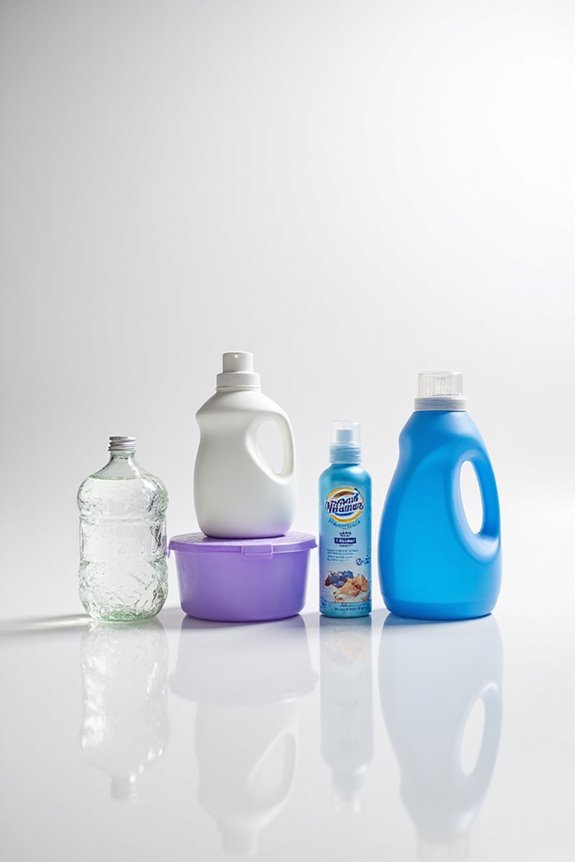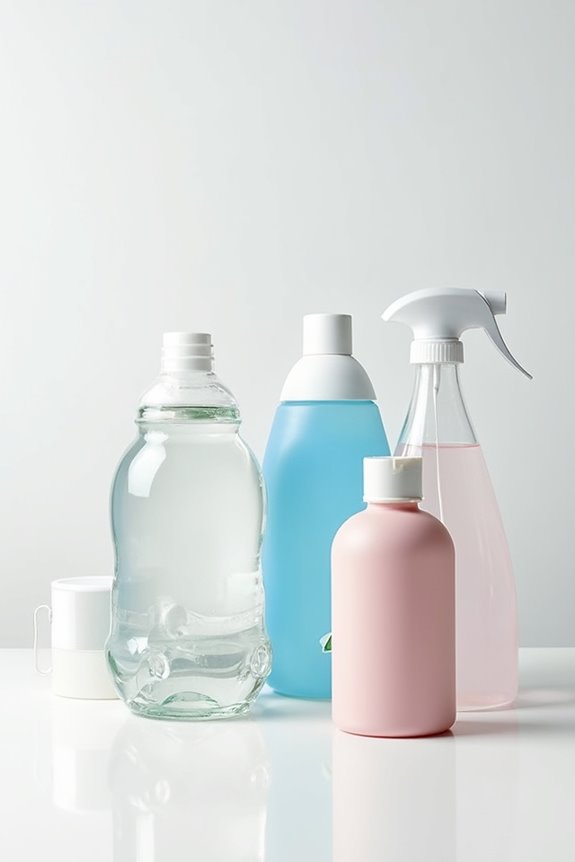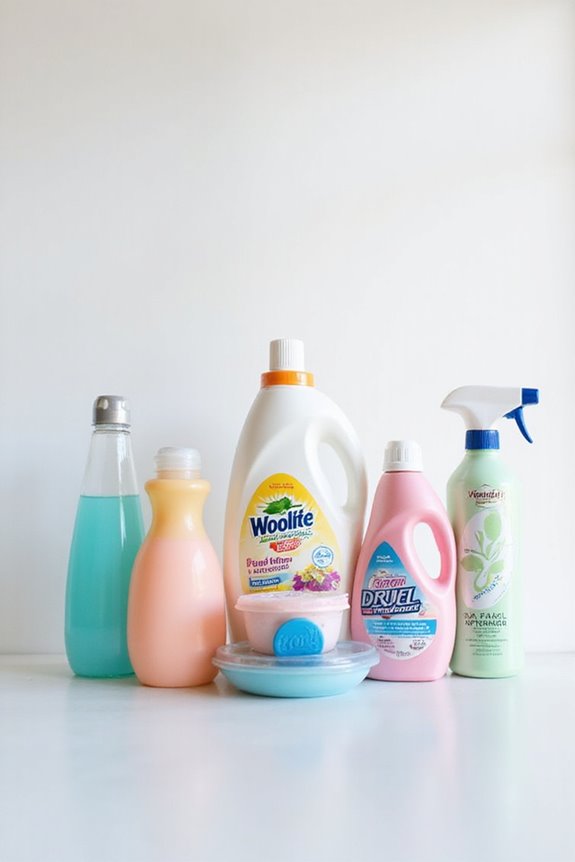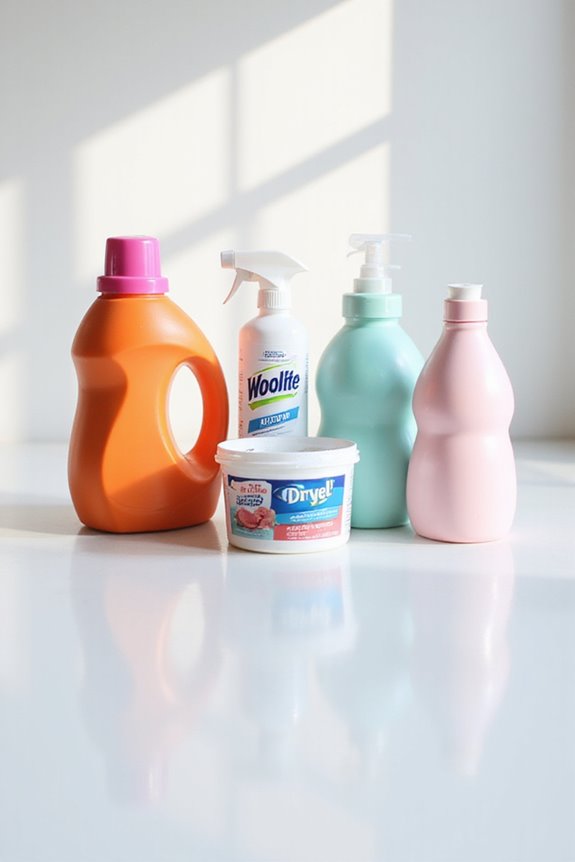We all love a good laundry day, but overloading a washing machine can ruin that vibe. When we cram too many clothes in, it can lead to poor cleaning, annoying noise, and even damage to the machine. Signs like a stiff drum or wet clothes after a wash are clues that we’ve gone overboard. Plus, it can pose safety risks like overheating. If we stick to the recommended load limits, we’ll keep everything running smoothly—let’s explore more on this!
Key Takeaways
- Yes, overloading a washing machine can happen when too many items are placed inside, exceeding its capacity.
- Signs of overloading include difficulty closing the door, loud noises, and wet or soapy clothes after washing.
- Overloading hampers cleaning efficiency, leading to leftover dirt, detergent buildup, and unpleasant odors in laundry.
- It can cause mechanical wear, stressing the motor and increasing the risk of costly repairs and failures.
- Safety hazards such as overheating and electrical risks arise from overloading, making it crucial to follow load limits.
Understanding Washing Machine Capacity
When it comes to understanding washing machine capacity, it’s important to know that not all machines are created equal. We often hear terms like “capacity measurement” thrown around, but what does it really mean? Well, washing machines can vary considerably, from compact models holding about 2.30 cubic feet to large capacity ones that can manage over 5.0 cubic feet. These differences matter, especially when we’re tackling various load types, like towels or comforters. Knowing our machine’s capacity helps us avoid overloading, ensuring efficient cleaning. Remember, a larger capacity can save us time and energy, letting us wash more in one go. So, let’s choose wisely and keep our laundry day stress-free!
Signs of Overloading Your Washing Machine
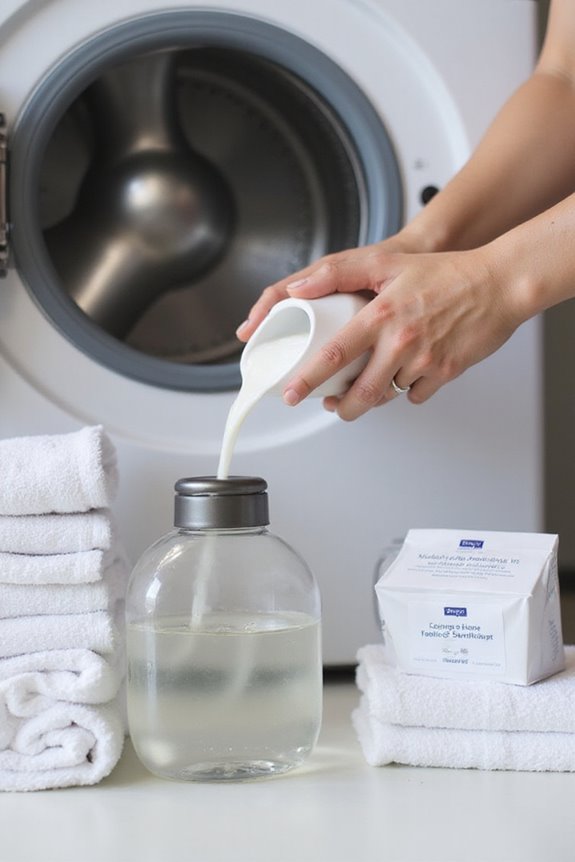
Overloading a washing machine can lead to a host of problems that are all too easy to miss. We’ve all experienced those overloading indicators, like struggling to close the door or hearing loud banging noises during spin cycles. If the drum feels stiff when we try to turn it manually, that’s a clear sign something’s off. Excessive vibrations can make it feel like our machine is doing a little dance! Plus, if our clothes come out wet or covered in soap, it’s probably because the washing machine performance is suffering. Remember, keeping an eye on these signs can save us from costly repairs and keep our laundry routine running smoothly. Additionally, using an appropriate amount of detergent based on the stain removal effectiveness can further ensure optimal washing machine performance. Let’s not overload our trusty machines!
Impact on Cleaning Efficiency
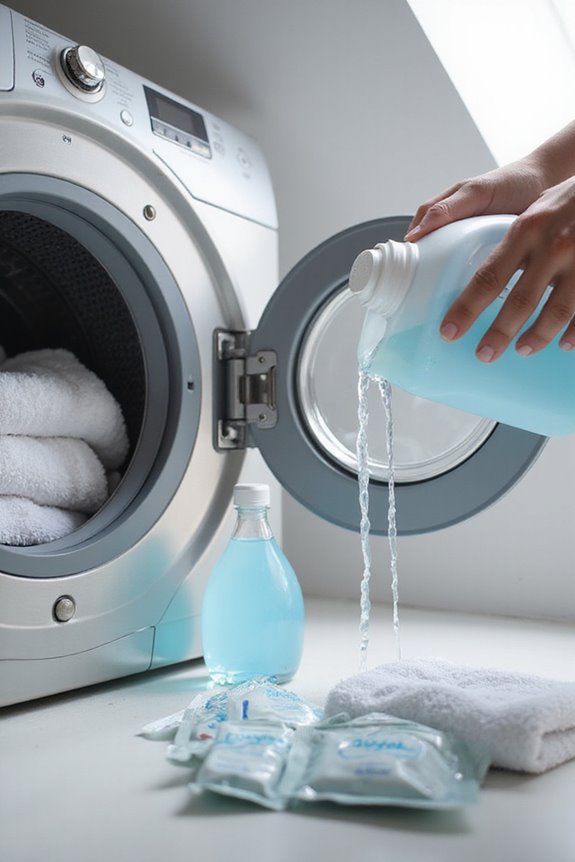
We all want our laundry to come out fresh and clean, but overloading our washing machines can really throw a wrench in that plan. When we stuff too many clothes in, we’re limiting water access and making it tough for detergent to work its magic. This can lead to leftover dirt and stains, which is definitely not what we want. Plus, the lack of movement means our clothes don’t get the friction they need for effective cleaning performance. We might even find ourselves dealing with that funky smell from detergent buildup! So, let’s not risk our fabrics or our favorite shirts. By keeping our loads manageable, we can guarantee better detergent efficacy and enjoy cleaner, fresher laundry every time. Additionally, using the right detergents designed for synthetic fabrics ensures optimal cleaning for activewear.
Risks of Accelerated Machine Wear
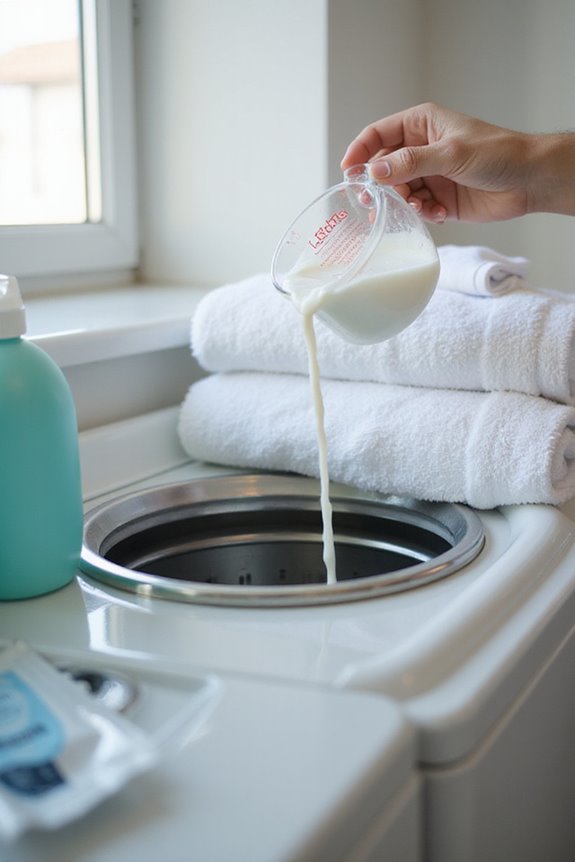
Even though it might seem tempting to toss in one more pair of jeans, cramming too much into our washing machine can come with some serious risks. Overloading can lead to mechanical fatigue, stressing the motor and causing it to work harder. This not only raises operational temperatures but also shortens the motor’s lifespan. Excess weight strains the drive system, increasing the chances of snapped belts and failures. Plus, an unbalanced drum can cause vibrations that wear out bearings and suspension systems faster than we’d like. Over time, these issues can add up, leading to costly repairs. So, let’s avoid the temptation and stick to the recommended load limits. Our washing machines will thank us in the long run!
Safety Hazards Associated With Overloading
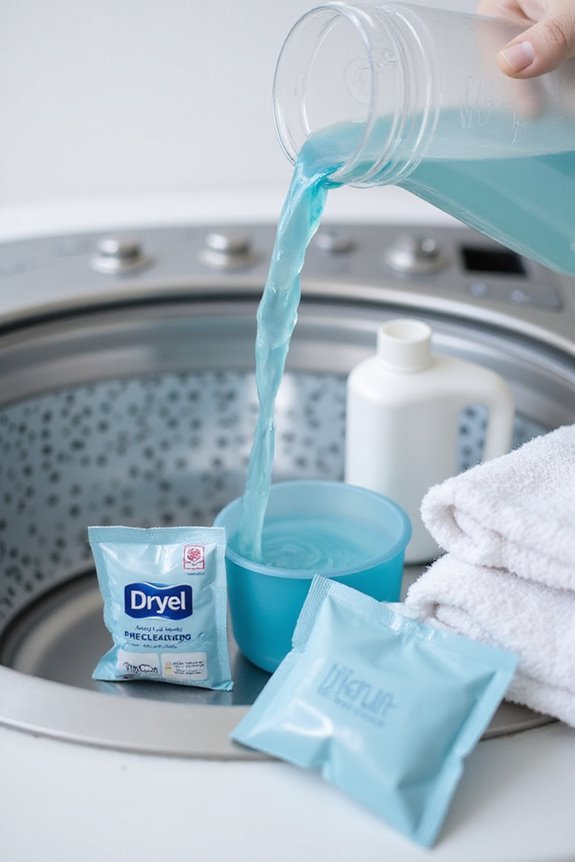
When it comes to laundry day, we all want to get the most out of our washing machines. But overloading can be a recipe for disaster. Excessive loads can cause our machines to overheat, which increases fire hazards due to mechanical and electrical stress. We might not realize that overloading also raises electrical risks, like short circuits that could spark a fire. Plus, if we push our machines too hard, mechanical failures—like a snapped belt—can happen, leading to even more hazards. It’s essential to stick to the manufacturer’s load limits to keep our laundry days safe. Remember, a little caution goes a long way in preventing potential risks that could turn our laundromat into a fire hazard!
Consequences of Water Damage and Leaks
While you might think overloading the washing machine is just a harmless way to tackle laundry, the consequences of water damage and leaks can be pretty severe. Washing machine failures are the leading cause of home water damage in the U.S., and a faulty hose can release up to 650 gallons of water an hour! That’s a mini flood right in our laundry room. We should replace those rubber hoses every three years to prevent leaks before they start. Plus, we can minimize risks by installing shutoff valves. Trust us, the cost of repairs from water damage far exceeds the price of simple leak prevention measures. So, let’s keep our homes dry and our laundry stress-free!
Effects on Clothing Quality
Overloading a washing machine can seem like a time-saving trick, but it really takes a toll on our clothes. When we cram too much in, we’re actually risking fabric longevity. Excessive friction and stretching can weaken fabric fibers, leading to tears and premature wear. Plus, tight packing prevents proper agitation, which is essential for cleaning and garment preservation.
We may even notice that our favorite clothes fade faster when they’re rubbing against each other in an overcrowded drum. And let’s not forget about that stiff texture from leftover detergent! In the end, we might be saving time but costing ourselves more in replacements. So, let’s be smart and give our clothes the space they need to stay fresh and last longer!
Maintenance Challenges and Health Concerns
Maintaining our washing machines can feel like a chore, especially when we push them beyond their limits. Overloading can lead to mechanical wear, causing parts like motors and bearings to fail. We might think we’re saving time, but the extra strain often results in higher maintenance costs, and nobody wants to fork out cash for repairs just because we crammed in one more shirt.
Let’s not forget the health impacts. Overloaded washers can’t clean clothes properly, leaving behind dirt and detergent. To keep our machines happy, we should follow some maintenance tips—like not exceeding the load capacity. Regular checks can save us from expensive breakdowns and guarantee our laundry stays fresh and clean! So, let’s treat our machines right!
Frequently Asked Questions
How Can I Determine My Washing Machine’s Capacity?
To determine our washing machine’s capacity, we can measure the drum’s diameter and depth, then calculate volume. We should also consider load measurement and weight limits to avoid issues during laundry day.
What Types of Fabrics Are Safest to Wash Together?
When we consider fabric compatibility, we should follow washing guidelines like keeping cottons together and separating delicates. This way, we guarantee our laundry remains in great shape and avoids unwanted damage during washing.
Can I Wash Blankets and Towels in the Same Load?
Sure, we can wash blankets and towels together with careful attention to weight and fabric types. Following washing tips helps address laundry concerns, ensuring everything cleans well without risking damage or imbalance in our machine.
How Often Should I Clean My Washing Machine?
Like a well-tended garden, our washing machine needs regular care. We should aim for monthly cleaning frequency, ensuring proper washing machine maintenance to prevent odors and buildup, keeping our laundry fresh and delightful every time.
Are Front-Load Washers More Prone to Overloading Issues Than Top-Loaders?
When considering front-load efficiency versus top-load convenience, we find front-loaders can be more prone to overloading issues. Their design requires careful loading, while top-loaders allow for larger, less restrictive loads without as much risk.

